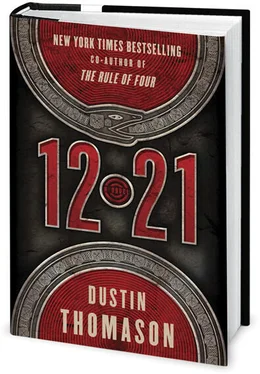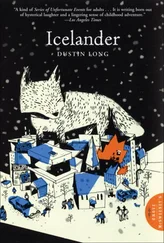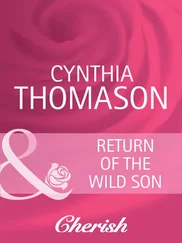The Maya considered sleep a religious experience, a time when people communed with the gods. To them, insomnia was the result of a lack of piety, and Chel knew there were many here who believed that VFI had been sent by the gods as a punishment. In this, they and the picketers were probably more alike than they knew.
Chel tried to calculate how much sleep she’d had in the past four days. She’d stolen catnaps on the love seat in her office, but for all intents and purposes there was little difference between her and someone in the first stages of VFI. She didn’t believe in the deities of her ancestors, but she certainly felt like she was being punished.
An elderly man wearing black slacks and a gray button-down shirt headed down the aisle toward her. The entire congregation was wearing eye shields, so it was difficult to differentiate people in the crowd. Only when he got close did Chel recognize his white beard. It was one of the few times she had seen Maraka out of his traditional robes.
“Chel,” he said, embracing her, “you’re safe. Thank God.”
“Daykeeper,” she whispered.
Maraka looked up at the pulpit. “Luis has been going on and on with prayers all day and night,” he said, not bothering to whisper. “I think it’s excessive. The gods are all-powerful. They hear us, believe me.”
Chel managed a smile.
“But I assume you haven’t come here to pray,” Maraka said.
“I need to see my mother.”
Maraka pointed to the far end of the sanctuary, where several indígenas women were seated in the pews, far from the altar.
As Chel approached, Ha’ana glanced up from the People magazine she was reading. She stood and pulled her daughter close. The magazine was expected, but Chel was surprised by the hug—it had been years since her mother had embraced her in this way. She felt something inside her give, and suddenly a huge wave of fatigue threatened to engulf her.
“You look like you haven’t slept,” Ha’ana said.
“I’ve been working.”
“Still? It’s ridiculous, Chel. What could be so important?”
* * *
THEY FOUND A LITTLE EMPTY classroom with chairs arranged in a horseshoe, deep in the west arm of the cathedral’s cross. Watercolor paintings of Joseph and his famous coat adorned every wall. These circumstances were hardly what Chel had envisioned when she’d imagined showing her mother the codex, but now she had no choice. She talked Ha’ana through the book’s connection to the illness and the apparent importance of Kiaqix to finding the source. Chel didn’t mention the trouble she faced with ICE and the Getty—the last thing she needed right now was to give Ha’ana cause for disappointment in her.
They scrolled rapidly through pages of the codex on her laptop screen. What it meant to Ha’ana to see something like this and, even more, to learn that the village she’d abandoned years ago was the possible source of VFI, Chel couldn’t tell. Her mother’s expression revealed nothing.
“So, Mom,” Chel said, “I need you to try to remember everything that happened when cousin Chiam went to find the lost city.”
Ha’ana put a hand on Chel’s arm. “I’ve been worried about you. I hope you know that. Now I know I was right to worry. This must be an incredible burden.”
“I’m fine. Now, please, Mom. I need you to remember.”
Ha’ana stood and wandered silently to the window. Chel prepared for her mother’s resistance, gathering all the reasons she would give for why Ha’ana had to dig back into a past that she never wanted to revisit.
To Chel’s surprise, Ha’ana needed no prompting.
“Your father’s cousin was the most skilled tracker in Kiaqix,” she began. “He could follow a deer for miles through the forest. From the time we were children, he was known as the best hunter in the village. But then the army came to the Petén, and indígenas were being murdered in the streets. Hanged from the tops of churches and burned alive. After the army made it to Kiaqix and your father was arrested, Chiam stepped into his place. It was he who read your father’s letters from prison aloud in community circle.”
Chel was pleased with the ease of her mother’s narration. She hadn’t heard Ha’ana volunteer anything about the letters her father wrote from prison for years, and she didn’t dare interrupt.
“Chiam was more militant than your father,” she continued. “He threatened to punish any of us who worked for a ladino , swore to kill as many of them as possible. He wanted to kill them as they killed us. Even your father’s letters were too soft for Chiam. The two of them had argued, but they were still close. When Alvar was arrested, I knew Chiam would do anything he could to get him out. Prisoners could sometimes be bought for the right price, so Chiam made contact with the guards at Santa Cruz. The price for your father was one hundred thousand quetzals.”
Chel stood up. “And that’s why Chiam tried to find the lost city? Why have you never told me that before?”
“Chiam didn’t want anyone to know he’d do business with the ladinos , even to get his own cousin out. Plus, if he found anything, he wouldn’t be proud of robbing our ancestors to bribe the enemy. Still, he went. And after twenty days he returned and told us what he’d found. He told us there was enough gold and jade to feed Kiaqix for fifty years.”
Chel knew the rest of the story well, but only now did she understand its profound connection to her father’s life, and death. His cousin told the villagers that the souls of the ancestors still lived deep in the jungle and that to steal from them would anger the gods. He said the lost city was a spiritual gateway to the other worlds and that it proved the glory of what the Maya once were and could be again. And that once he’d seen the ruins with his own eyes, he couldn’t move a single stone or take a single artifact from its resting place. Not for any reason.
The problem was that no one believed him. No one could accept that he had found treasures and simply left them there. After days of ridicule, Chiam claimed he would lead a team back into the jungle to prove himself. But, before he could, the Guatemalan army hanged him with a dozen other men from across the Petén for their revolutionary activities.
“Chiam gave many details,” Ha’ana continued. “He said there were twin temples that faced each other, and a great patio with huge columns, where our ancestors would have met to discuss politics. Can you believe it? He thought his stories would remind us we were just as smart as the ladinos . But he was not cunning enough, and everyone knew he wasn’t telling the truth. He was a good, kind man, but his story was a lie.”
“He said there was a patio?” Chel said. “With huge columns?”
“Something like that.”
“How tall? Thirty feet?”
“He could have said a thousand feet. No one was listening.”
But Paktul had described a colonnade in Kanuataba’s main plaza that circled a small interior court, with pillars that were six or seven men high. And while twin temples existed at dozens of Maya cities, columns built that high existed at only one or two places in Mexico. In Guatemala they were half as tall or less.
“He might have found it,” Chel said. She started to explain the connection she’d made, but her mother wasn’t interested in hearing it. “The lost city is a myth,” Ha’ana said. “Like all lost cities.”
“We’ve found lost cities before, Mom. They’re out there.”
Ha’ana took a breath. “I know you want to believe this now, Chel.”
“This isn’t about me.”
“Every villager in Kiaqix wants to believe in the lost city,” Ha’ana said. “They deceive themselves because it gives them hope. But that does not make the oral history any more than what it is: the silly stories of people who cannot know better. I didn’t bring you here and raise you to be one of them.”
Читать дальше












